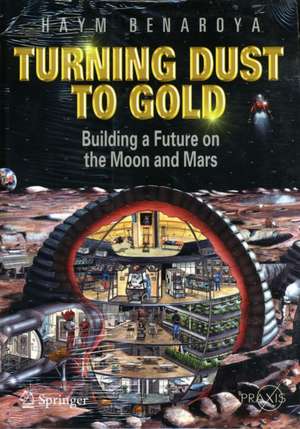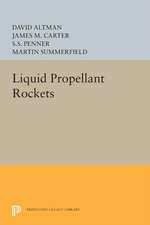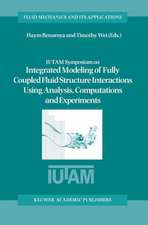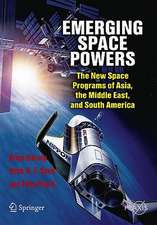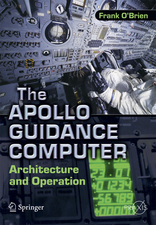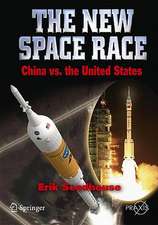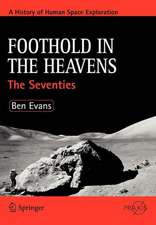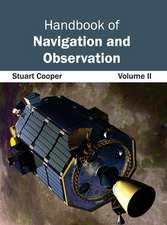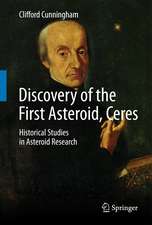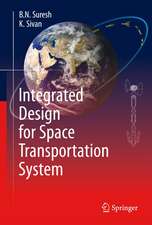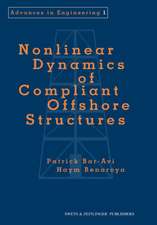Turning Dust to Gold: Building a Future on the Moon and Mars: Springer Praxis Books
Autor Haym Benaroyaen Limba Engleză Paperback – 8 apr 2010
Din seria Springer Praxis Books
-
 Preț: 294.46 lei
Preț: 294.46 lei -
 Preț: 223.45 lei
Preț: 223.45 lei -
 Preț: 193.12 lei
Preț: 193.12 lei -
 Preț: 167.85 lei
Preț: 167.85 lei -
 Preț: 288.98 lei
Preț: 288.98 lei -
 Preț: 323.74 lei
Preț: 323.74 lei -
 Preț: 401.38 lei
Preț: 401.38 lei -
 Preț: 264.12 lei
Preț: 264.12 lei - 8%
 Preț: 513.00 lei
Preț: 513.00 lei -
 Preț: 190.01 lei
Preț: 190.01 lei -
 Preț: 218.16 lei
Preț: 218.16 lei -
 Preț: 312.06 lei
Preț: 312.06 lei - 17%
 Preț: 414.05 lei
Preț: 414.05 lei -
 Preț: 216.41 lei
Preț: 216.41 lei -
 Preț: 262.27 lei
Preț: 262.27 lei -
 Preț: 264.35 lei
Preț: 264.35 lei -
 Preț: 167.63 lei
Preț: 167.63 lei -
 Preț: 284.81 lei
Preț: 284.81 lei -
 Preț: 259.08 lei
Preț: 259.08 lei -
 Preț: 305.47 lei
Preț: 305.47 lei -
 Preț: 244.14 lei
Preț: 244.14 lei -
 Preț: 227.85 lei
Preț: 227.85 lei -
 Preț: 285.25 lei
Preț: 285.25 lei -
 Preț: 295.56 lei
Preț: 295.56 lei -
 Preț: 357.17 lei
Preț: 357.17 lei -
 Preț: 275.79 lei
Preț: 275.79 lei -
 Preț: 257.08 lei
Preț: 257.08 lei -
 Preț: 349.71 lei
Preț: 349.71 lei -
 Preț: 272.45 lei
Preț: 272.45 lei -
 Preț: 270.27 lei
Preț: 270.27 lei - 8%
 Preț: 456.51 lei
Preț: 456.51 lei -
 Preț: 352.34 lei
Preț: 352.34 lei - 8%
 Preț: 394.80 lei
Preț: 394.80 lei -
 Preț: 320.65 lei
Preț: 320.65 lei -
 Preț: 325.29 lei
Preț: 325.29 lei -
 Preț: 253.11 lei
Preț: 253.11 lei -
 Preț: 192.86 lei
Preț: 192.86 lei -
 Preț: 313.40 lei
Preț: 313.40 lei -
 Preț: 150.51 lei
Preț: 150.51 lei -
 Preț: 233.34 lei
Preț: 233.34 lei -
 Preț: 286.78 lei
Preț: 286.78 lei -
 Preț: 212.01 lei
Preț: 212.01 lei -
 Preț: 366.83 lei
Preț: 366.83 lei -
 Preț: 299.99 lei
Preț: 299.99 lei -
 Preț: 232.27 lei
Preț: 232.27 lei -
 Preț: 284.58 lei
Preț: 284.58 lei -
 Preț: 212.45 lei
Preț: 212.45 lei -
 Preț: 159.81 lei
Preț: 159.81 lei -
 Preț: 349.48 lei
Preț: 349.48 lei - 20%
 Preț: 2061.64 lei
Preț: 2061.64 lei
Preț: 349.48 lei
Nou
Puncte Express: 524
Preț estimativ în valută:
66.89€ • 72.69$ • 56.23£
66.89€ • 72.69$ • 56.23£
Carte disponibilă
Livrare economică 31 martie-14 aprilie
Preluare comenzi: 021 569.72.76
Specificații
ISBN-13: 9781441908704
ISBN-10: 1441908706
Pagini: 440
Ilustrații: 400 p. 40 illus.
Dimensiuni: 152 x 229 x 23 mm
Greutate: 0.84 kg
Ediția:2010
Editura: Praxis
Colecția Praxis
Seriile Springer Praxis Books, Space Exploration
Locul publicării:New York, NY, United States
ISBN-10: 1441908706
Pagini: 440
Ilustrații: 400 p. 40 illus.
Dimensiuni: 152 x 229 x 23 mm
Greutate: 0.84 kg
Ediția:2010
Editura: Praxis
Colecția Praxis
Seriile Springer Praxis Books, Space Exploration
Locul publicării:New York, NY, United States
Public țintă
Popular/generalCuprins
Introduction.- A Vision Of Our Goals.- Bootstrapping A Lunar Civilization.- Technical Issues.- Lunar Bases.- Science On The Moon.- Commerce On The Moon.- The Moon, Then Mars.- Luna At 2050.- Mars 2050-2100.- Issues For The Next Generation.
Recenzii
From the reviews:
“Turning Dust to Gold presents a history of the space program as well as a retrospective of that history. … The interview with Neil Armstrong and a few of the others deserve wide circulation. This well-written book makes the case for space exploration and manned settlement of the moon and planets, and explains how these activities can be accomplished. Summing Up: Highly recommended. Lower-division undergraduates through professionals, general readers, and all space enthusiasts.” (A. M. Strauss, Choice, Vol. 48 (2), October, 2010)
“The book is essentially one long argument for the exploration, settlement, and economic utilization of Earth’s natural satellite. … The moon is the principle focus throughout … . Turning Dust to Gold makes a powerful case for the importance of lunar colonization, and outlines the steps human civilization is likely to have to make in order to achieve that goal. It contains much food for thought, and I recommend it highly to anyone with an interest in the future of human space exploration.” (Ian Crawford, The Observatory, Vol. 131 (1221), April, 2011)
“If the fiction takes place on the Moon or Mars, the fiction reader will further broaden his or her views and better exercise his or her ability to create or at least dream. This is certainly the goal of this book … . a well illustrated book with many diagrams, artistic views, and photographs. … We see it best used in a creative writing class either as an example of science fiction or as a basis for discussion between students of science and literature.” (Gary J. Long, Belgian Physical Society Magazine, Issue 3, 2011)
“Turning Dust to Gold presents a history of the space program as well as a retrospective of that history. … The interview with Neil Armstrong and a few of the others deserve wide circulation. This well-written book makes the case for space exploration and manned settlement of the moon and planets, and explains how these activities can be accomplished. Summing Up: Highly recommended. Lower-division undergraduates through professionals, general readers, and all space enthusiasts.” (A. M. Strauss, Choice, Vol. 48 (2), October, 2010)
“The book is essentially one long argument for the exploration, settlement, and economic utilization of Earth’s natural satellite. … The moon is the principle focus throughout … . Turning Dust to Gold makes a powerful case for the importance of lunar colonization, and outlines the steps human civilization is likely to have to make in order to achieve that goal. It contains much food for thought, and I recommend it highly to anyone with an interest in the future of human space exploration.” (Ian Crawford, The Observatory, Vol. 131 (1221), April, 2011)
“If the fiction takes place on the Moon or Mars, the fiction reader will further broaden his or her views and better exercise his or her ability to create or at least dream. This is certainly the goal of this book … . a well illustrated book with many diagrams, artistic views, and photographs. … We see it best used in a creative writing class either as an example of science fiction or as a basis for discussion between students of science and literature.” (Gary J. Long, Belgian Physical Society Magazine, Issue 3, 2011)
Notă biografică
Professor Benaroya is a well-known aerospace engineer and scholar with a wealth of publications to his credit. He has researched this subject for over 17 years, primarily at Rutgers University in New Jersey.
Textul de pe ultima copertă
Our continued prosperity and survival as species will in part depend upon space exploration and manned settlement. This will provide resources for our industrial societies and create new opportunities and markets. This book is a journey into our potential future, as several nations today begin seriously to plan and build up their capabilites for manned space flight and settlement on the Moon and Mars.
Caracteristici
Explores the importance of being a spacefaring nation Demonstrates the planning and building of capabilities for manned space flight and space settlement Proposes maximizing use of the Moon for the benefit of humanity Describes life in a human colony on the Moon in the year 2050 Shows that science and engineering fact are already ahead of science fiction
